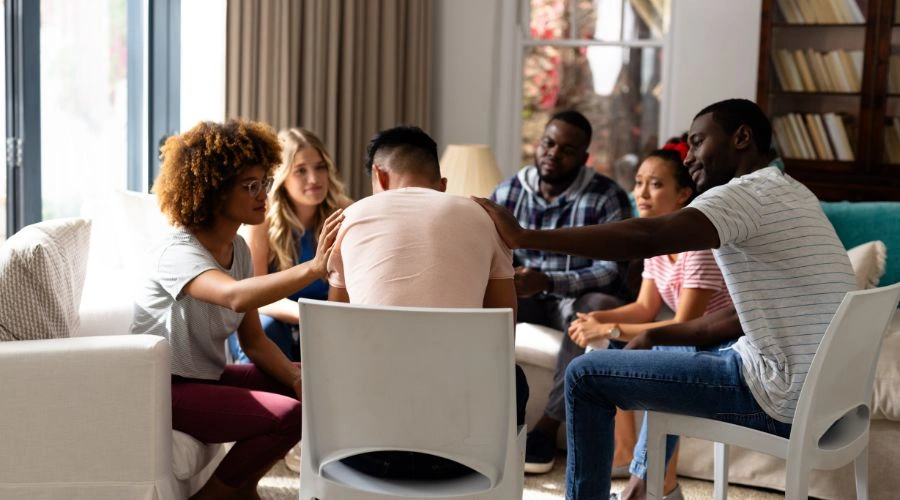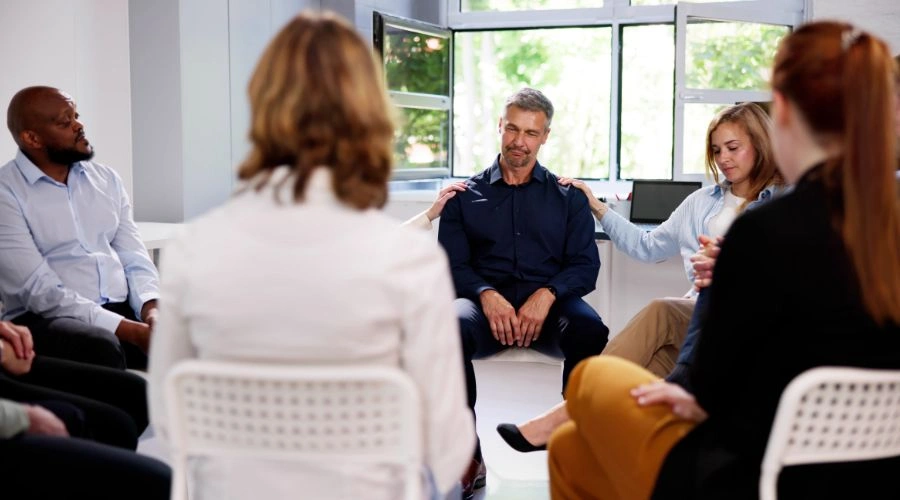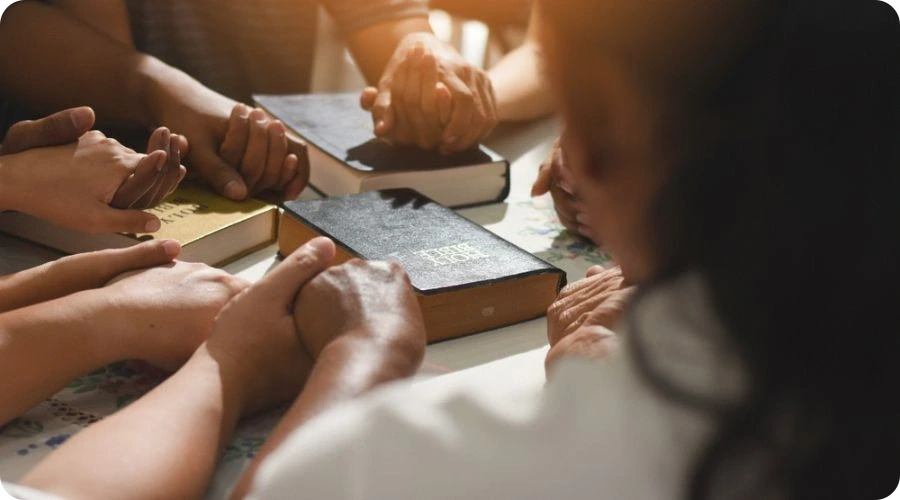Al-Anon Family Groups and Other Resources for Loved Ones
When it comes to your loved one’s drinking problem (or drug use), you likely already know that the whole family will suffer. Most friends and family members will try to get them to an AA meeting, but what about yourself? The good news is that there is a program like Alcoholics Anonymous for family members known as Al-Anon.
Al-Anon family groups offer you a safe space to connect with others who have a loved one struggling with substance abuse. When you attend your first meeting, you don’t have to talk, and you don’t have to ascribe to a specific religion. Al-Anon members learn how to set better boundaries, communicate more clearly, and take better care of themselves.
Changes Healing Center is here to support the entire family when substance use disrupts daily living. We can help reconnect families through therapy and counseling while referring family and friends to community resources like Al-Anon.
Keep reading to learn more about how Al-Anon meetings help concerned loved ones to talk about and support someone with a drinking problem.
What are Al-Anon Meetings for Family Members?
While there seem to be endless resources in the community for a loved one’s drinking, it is much harder to find resources for the family. Alcoholics Anonymous is a great program with a track record of success helping people to get sober. What if you could benefit from the program as well, even if you don’t drink?
Al-Anon meetings are designed specifically to support family members and loved ones with a person in their close orbit who has a drinking problem.
Much like the traditional AA program, Al-Anon allows family members to work through the Twelve Steps. This not only equips you with the skills and mindset you need to cope with your loved one’s drinking, but it also provides you with the language you need to discuss recovery with them.
There is also an Alateen program for young adults who have a loved one who struggles with alcohol.
A Drinking Problem is a Family Illness
You might think you don’t need help from support groups because you don’t have a drinking problem. Family members and friends of alcoholics are affected by this more than they typically realize. The truth is that substance abuse is a family disease, and Al-Anon offers help for the family.
It’s important to note that drinking can often run in families, as there is a genetic component to alcohol use disorder. Al-Anon meetings focus on this as a family illness. That means that your loved one may only be able to overcome their addiction with the support of friends and family.
Al-Anon equips loved ones to support and encourage their addicted family member or friend by allowing them to gain a greater understanding of the root causes of alcoholism.
What Can You Expect from an Al-Anon Group?

Before you attend your first Al-Anon family groups, you might be wondering what it will be like. For some, the uncertainty over what they’ll face when attending the program keeps them from trying it.
Here is what you can expect from the Al-Anon program.
A Group of People Who Faced Similar Problems
The first meeting you attend will likely come as a bit of a shock to you. You’ll be surrounded by people who know exactly what you’re going through because they faced similar problems. While the situations surrounding their loved one’s drinking likely differ, you’ll have more in common than you think.
It’s important to keep in mind that you will also have complete anonymity when you attend a meeting. You won’t be able to tell others about the other members of your group, why they’re there, or how they have similar circumstances.
But you can encourage the rest of your family to attend by telling them about the feeling of being in a room with a group of people who faced similar problems.
Members of Al-Anon have a better quality of life, according to research.
Al-Anon Members Don’t Have to Talk
One of the best parts of an Al-Anon group is the opportunity for members to share what they’re going through in relation to someone else’s drinking or alcohol abuse. You’ll feel a sense of camaraderie with them, no matter where you are in your personal journey. This is what helps people feel less alone.
However, you don’t need to speak when you attend a meeting. If you want to sit and observe for the first few meetings before you dive in as an active participant, that is entirely up to you.
Just by being present, you can absorb the material surrounding the Twelve Steps outlined in Alcoholics Anonymous and Al-Anon. You’re learning and can dive into the discussion whenever you feel ready or whenever you have knowledge to share with the group.
No Religion Required
Religion isn’t a core tenet of the Twelve Step program found in Al-Anon. You don’t have to adhere to one specific religion to get the maximum benefit from the meetings. Instead, you’ll only have to surrender to your idea of a higher power. This can be anything you want, including a general feeling of hope in the universe at large.
Alcoholics Anonymous has the same language surrounding finding a higher power. It’s all about finding hope and surrendering to something bigger than yourself.
You don’t have to know exactly what your higher power is at the beginning. You can learn more about your own belief system as you work your way through the Twelve Steps.
Strength to End Codependency for Friends of Alcoholics

For many people struggling with a loved one’s drinking problem, they find themselves caught in a cycle of perpetuating the behavior. You may enable them to drink by covering for them at work or with your family and friends. However, many people also find that the drinking problem impacts their sense of self.
Codependency is common among family and friends of alcoholics. Your mental health is inextricably tied to their sobriety, which poses a problem if they relapse.
The benefits of Al-Anon are far-reaching.
An Al-Anon group will teach you to separate your personal identity from the life of your loved one, who may be struggling with alcoholism. You’ll learn to set boundaries in recovery, effectively communicate your needs, and more.
Remember that Al-Anon meetings are a great community resource, but they aren’t a substitute for your individual therapy. Working with a counselor can accelerate your learning and improve mental health.
Choosing Changes Healing Center to Support a Loved One in Getting Help
Are you looking for a treatment program you can recommend to a loved one for their drinking problem or alcoholism? Changes Healing Center offers a robust residential and outpatient program where they can tap into resources like Alcoholics Anonymous meetings, individual therapy, and more.
We can even help you find Al-Anon meetings so that you can support your loved one in recovery. Our program recognizes that this is a family illness, and we provide family-based therapy to repair your most important relationships.
Let our enrollment team answer your questions about the recovery process and equip you with the resources you need to help a loved one find sobriety.
We can even verify insurance benefits in your confidential call!
References
- Timko, C., Cronkite, R., Kaskutas, L. A., Laudet, A., Roth, J., & Moos, R. H. (2013). Al-Anon family groups: newcomers and members. Journal of studies on alcohol and drugs, 74(6), 965–976.
- Young, L. B., & Timko, C. (2015). Benefits and costs of alcoholic relationships and recovery through Al-Anon. Substance use & misuse, 50(1), 62–71.
- Timko, C., Laudet, A., & Moos, R. H. (2016). Al-Anon newcomers: benefits of continuing attendance for six months. The American journal of drug and alcohol abuse, 42(4), 441–449.




